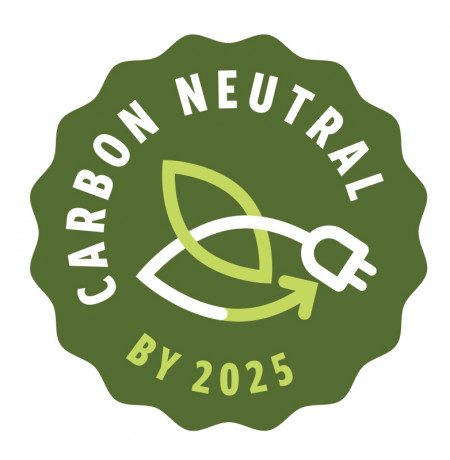Agrace Sets Goal to Become Carbon Neutral by 2025

MADISON, Wis., October 18, 2022 (Newswire.com) - Agrace today announced it is working to become carbon neutral by 2025. The Madison-based nonprofit health care organization plans to do its part to care for the environment of southern Wisconsin, just as it cares for its people.
Agrace's efforts will reduce its greenhouse gas emissions by ensuring efficient building operations, funding methods of generating renewable energy at its Madison and Janesville inpatient units and offices, purchasing "green" power—such as that from wind and solar—and offsetting remaining emissions.
Agrace has measured its carbon footprint using data from sources such as utility bills for Agrace-owned and leased facilities, staff commuting mileage, fleet records, mileage reimbursement and more. The resulting carbon footprint was determined to be 4,730 metric tons of carbon dioxide equivalent (CO2e).
Agrace's carbon-neutral strategy has six main components:
- Retro-commissioning: Identifying no-cost and short-payback opportunities to reduce energy consumption at Agrace facilities, while maintaining or improving each facility's operations to achieve 5 to 15 percent total building energy savings with a simple payback of less than two years.
- Equipment replacement: Proactively replacing building components that are at or near the end of their useful life with new equipment that has been evaluated for energy efficiency.
- Green power: Agrace is partnering with local utilities to participate in green power programs, which allow businesses to purchase locally generated power from renewable sources.
- On-site solar: Agrace will add a solar array to the roof of its Janesville facility that is expected to significantly reduce the amount of electricity drawn from the utility. Agrace is also evaluating a solar system for its Madison campus and expects to install it in 2023.
- Carbon offsets: Agrace plans to "offset" emissions generated by the organization that cannot be immediately eliminated—by funding projects such as land restoration, forest management and methane capture.
- Other impacts/efforts: Agrace is becoming more efficient in scheduling to reduce miles driven by staff and evaluating converting fleet vehicles to electric.
"Changes in our climate are tied to increasing risks to human health, including poor air quality, the spread of certain diseases, reduced food and water quality, and extreme weather conditions. Some of these changes can directly affect Agrace's patients and clients," said Lynne Sexten, Agrace president and CEO.
Agrace also has internal initiatives underway that are tangible ways employees can help support Agrace's larger project. These actions include recycling, sustainable purchasing, and reducing or eliminating waste sent to landfills.
"As a nonprofit, Agrace is 'of the community' and governed 'by the community.' Reducing our carbon footprint highlights our commitment to being a responsible and forward-looking participant in the greater good of the community. We also anticipate there will be intangible benefits, like employee recruitment and engagement," explained Sexten. "Our employees are very passionate about this initiative and excited to see the impact Agrace can make."
More information about Agrace's plan is available at agrace.org/green. For more information about Agrace, visit agrace.org.
Source: Agrace
